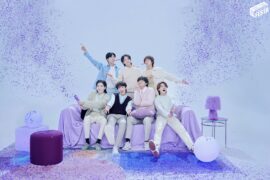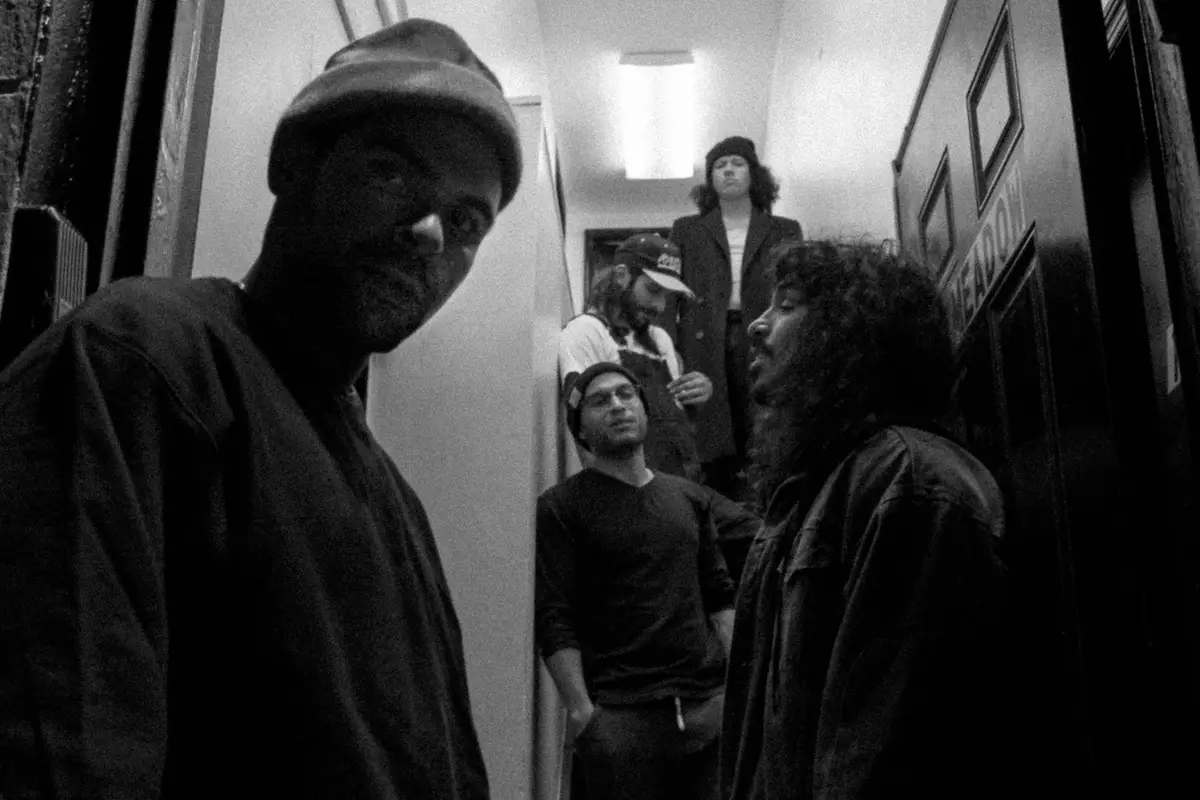Queens-based indie rock duo Diamond Grinder dive into their dreamy debut album ‘Expectations,’ songwriting, and their inspiration for what’s to come!
for fans of Big Thief, Angel Olsen, boygenius
by guest writer Blake McMillan
Margaret Nygard and Eli Recht-Appel met in middle school band in San Francisco, California.
After Recht-Appel moved to New York City in 2016 to pursue music, Nygard followed in 2021. They became roommates in Queens, each in search of their own individual music projects before realizing they could have a singular collaboration together.
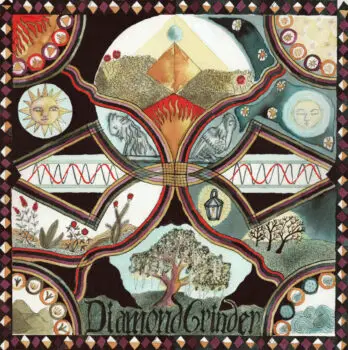
They called it Diamond Grinder, a folk rock band that transports listeners into the songwriting duo’s escapism. Nygard tends to lead vocals on a string-dreamy soundscape in a manner that feels folksy and astoundingly Carole King. When companion Eli Recht-Appel joins on a track, her lullaby of a voice is complimented by a gruffness that’s casually cool.
They joined indie label Perpetual Doom Records and released their debut album Expectations in June.
I met them on a Friday night outside Peg’s Cavalier in Ridgewood, Brooklyn to discuss the album, their songwriting process, and what’s next.
— —
:: stream/purchase Expectations here ::
:: connect with Diamond Grinder here ::
Stream: ‘Expectations’ – Diamond Grinder
A CONVERSATION WITH DIAMOND GRINDER
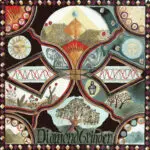
Atwood Magazine: So, let's talk about “Wonder.” It’s the first song you guys put out together. What came first in the creative process for that song?
Margaret Nygard: That was something that I wrote like 2 or 3 years ago, before Eli and I started working together. And it was actually a really different song. The chorus always was the way that it is now. It almost reminded me of the more jazzy style of writing that I used to do in high school. It was kind of a weird verse melody.
Eli Recht-Appel: It leaned way less into that kind of catchy verse chorus form that I think ultimately the song Margaret formed it into.
I remember I wrote it on my walk home from work at this restaurant in San Francisco called Nopalito after I had this conversation with a coworker who had just broken up with her boyfriend but was excited about the future. I was trying to write a melody that was in unison with the guitar, but because I had so little guitar vocabulary, it just wound up being not what I wanted it to be.
Eli Recht-Appel: We recorded a demo of it. We finished that version of the song before we have the band. That was like ‘Wonder 0.5’ or something. And then eventually, when Margaret came up with a new verse melody, we just reworked the lyrics together.
Margaret Nygard: I remember playing the chorus in rehearsal, because I find it to be very catchy, and Simon Clinton (a guitarist on the album) kept on being like, “What’s that song? You should work on it!” so I wrote a new verse for it.
What is the little sound at the beginning?
Eli Recht-Appel: Oh, the drum machine in the beginning! That was programmed by Jared Samuel, who has produced all of our released music so far.
Margaret Nygard: I think we talked about it beforehand, but he brought the drum machine to our session to record. And it kind of was something I had never thought about. I don’t know if you had thought about recording to drum machine.
Eli Recht-Appel: No.
Margaret Nygard: He was like, “We’re going to just try it and see how it influences.” And on some of them, we kept the drum machine.
Eli Recht-Appel: It was in lieu of a click track, which in a very technical sense, is just keeping you on a grid, so it’s easier to record. You have to play and stay on tempo.
Margaret Nygard: I feel like a metronome can almost make you overthink. I’m not thinking about playing the music, I’m thinking about staying on time. It just really affects my performance. But the drum machine is fun.
It's such a fun little intro and then the guitar starts. It's still playing at the end?
Eli Recht-Appel: Yeah!
It's almost like it's like you forget it's there. Thinking melodically with the lyrical part, it's like “Wonder”; that sense of having wonder is there the whole time even if you don’t always know. Your songs feel like you’ve built this entire world, where I’m in a red pickup truck driving through a swamp and it’s green and blue outside and lightning bugs are flickering, and someone has a guitar somewhere. Do you feel like you do world building in your music?
Eli Recht-Appel: I would say yes. I would say Margaret the most, because a lot of Margaret’s lyrics are very character and setting driven.
Margaret Nygard: Imagery I have thought about more than characters. It’s hard to think about actually. I definitely will start a melody and think about what type of imagery I feel like the melody reflects.
Eli Recht-Appel: I do think that as much as we are like bonafide city folk, we both have families that were able to give us a much more dynamic environment throughout childhood; Margaret’s parents have a farm, my parents are from outside of Wisconsin. If there’s ever a feeling of it being an Americana setting, part of that is loving that music.
Margaret Nygard: I feel like because of that, the time that we spent not in cities felt so special, because it was less common.

Thinking about collaboration, say you have this big emotion that you want to unpack through songwriting. When you come to Eli, or vice versa, do you ever feel disconnected maybe from the theme? Are you still willing to work together on it? Let's say you're (Margaret) in a really good place? And you're (Eli) heartbroken. Has there ever been an instance where it's ‘I don't know if I can help you right now?’
Eli Recht-Appel: I can think of when Margaret was starting to write “Cut the Shine.” She had this really beautiful verse form and some lyrics. And she was like, ‘Well, I’m pretty sure I want to write this set of lyrics on my own.’ It made sense for me to contribute a melody or chorus form, and then just totally stepping away.
It’s knowing the other person’s boundaries. If something’s really personal, I know it’s possible for me to contribute and then I don’t have to insert myself otherwise.
Margaret Nygard: I’ll still be at the helm, in terms of the lyric writing, because it’s what’s most personal to me. It’s more in those cases where it turns into an editing partnership, where it’s “This is what I have so far. What do you think could be tweaked?”
We have a song, “Goodbye.” I wrote the song right after a hard break up that I was going through, and it’s just about letting go of an important relationship that was tumultuous. Eli is always who I go to more for lyrics, but also I think what I’ve lacked the most in terms of my songwriting is the ability to see the whole song, and the structure of it. I feel like Eli helped me figure out what piece goes where.
Eli Recht-Appel: Margaret’s strength for me is often just being really straightforward about when a moment in a song isn’t being strong enough for her. Being an editor in that sort of way. You brought up “Wonder.” I feel like that song was an example of Margaret being very honed in on wanting the details to be very good. And me being like, ‘Okay, if we have this new verse, we need to shift the whole song so that it gets into the chorus naturally.’
Over this summer, you dropped Expectations. Do you feel like the album captures events or periods in your lives?
Eli Recht-Appel: It captures the last few years for me pretty well: alienation in the wake of COVID-19, autobiographical to the same period of time, digesting different parts of life. I think the overlap there is like the last, few years preceding that album. The oldest song on it is, “Let Me Live with You.” The first iteration I wrote of that was as a freshman in college, seven or eight years ago. And that one’s just a complete outlier for how old the source material is. Even that song, Margaret edited the lyrics in a way that I felt like really brought it to be a contemporary of the other songs. the oldest song outside “Let Me Live with You” on the record is “Funeral Pyre.”
Margaret Nygard: Which I wrote when I moved here.
I do have a really silly question. On “Lantern” you wrote, “Staring your way through Omicron.” Is that COVID adjacent? I was Googling ‘omicron,’ and the actual word was like Greek.
Margaret Nygard: No, no, it’s just a reference to the Omicron wave. I wrote that song when I had Omicron. I was isolated in my room and people were bringing food to my door and being really sweet at home. And at the same time, I had just been introduced to the concept of open tuning on a guitar. I just had this nylon string learner guitar. I remember I was curled up on the floor between my bed and the wall, really fetal position playing this song. A lot of what I’m doing when I’m writing is just taking a shape and moving it up and down the guitar. Because of that, I feel like it started sounding really kind of Baroque.
Eli Recht-Appel: It’s definitely our closest song to Baroque pop.
When you say moving a shape…?
Margaret Nygard: On the guitar, the shape of your fingers is creating a relationship between the distance between your finger and of the neck? the strings and the different strings, and as you’re moving it up and down the neck, that relationship stays parallel, which is kind of a Baroque style.
Is it harmonic?
Eli Recht-Appel: Yeah, so no matter where you move it on the guitar, it’s going to be that same chord just in a different key or in a different register. It can sound a lot more baroque or pre-classical music. I feel like “Lantern” specifically ended up feeling almost British-like folk music or something in a way that’s related to Renaissance or Baroque in those music traditions.
Margaret Nygard: It sounds like a jig. It’s very like this feeling. (bounces in place)
Eli Recht-Appel: It’s much bouncier than the rest of our music.
Your work feels timeless. What was it like to allude to the 2020s with COVID, Omicron. Was there ever a conscious decision?
Margaret Nygard: I think when I use the word Omicron, I definitely was like, ugh? There was some apprehension with that. I remember I asked Eli about it. It seems so contemporary. I feel like a lot of my writing is fantasy writing for me, where it’s an escape. I didn’t want to pull anybody out of that escape by giving it a modern word.
Eli Recht-Appel: It’s so incongruous or something that I was like, ‘Yeah, that feels earned.’ It’s the climactic moment of the song, melodically. It didn’t feel like it took me out of something. That moment of tension, it felt like Margaret’s writing that song really earned that moment of tension, because there’s a release, and then it would be kind of a climax moment. there’s also these lyrics being dissident with the songwriting.
Margaret Nygard: It’s a surprising development that brings intrigue versus if it’s at the more at the beginning, then it’s more like a “Yeah, OK?”
Eli Recht-Appel: Sometimes when something is inconsistent in tone right off the bat you’re not going to necessarily register that as being artistic, inconsistent, or being sort of intentional or thoughtful. When you’re distracted by an inconsistency, it’s really easy to be like, “Well, where are they?” And that just makes it not immersive.
On the album there's some scene setting from the Midwest. In “Wonder” there's Topeka and Missouri.
Margaret Nygard: I wrote both of those. Topeka was purely fantasy. I’ve never been there before. I like the sound of the word. And it fit well. But then Missouri, I did spend some time in Missouri with an ex-boyfriend. That’s really related to those couple of verses. Processing some stuff. [laughs]
There’s a fun melody on “Skeleton,” where you sing, “Slip my hand in your winter glove.” I'm curious if the lyrics or melodies come first.
Eli Recht-Appel: It was pretty simultaneous, at least for that first phrase, because the verse form was already written, and I was trying to think of where to. That happened pretty naturally where that first line, “slip my hands into your winter gloves” was kind of simultaneous with the with the musical element of it. Even if it feels kind of simultaneous, that a lot of a lot of times it’s hard not to lead with melody as a writer. I would say a vast majority of the time, music comes first, or at least by like a millisecond.
Margaret Nygard: I would agree. It doesn’t feel good sometimes to labor over lyrics when you have a melody that you really love, and you want your lyrics to live up to the melody. It feels simultaneous.
It doesn’t feel good sometimes to labor over lyrics when you have a melody that you really love, and you want your lyrics to live up to the melody. It feels simultaneous.
When did “Expectations” become the title track?
Margaret Nygard: The album was such a rush job in general. We just wanted to finish something. I feel like I have had a history of starting and not finishing or not going with full gusto through an entire process. I feel like I remember it just being like, “Expectations. Cool.”
Eli Recht-Appel: That was the only one that stuck out as an acceptable title track. it’s nice because it’s the first album that we’re making. So obviously we have a lot of expectations, even if no one else has expectations like we do.
The album feels unified because it's sonically cohesive.
Margaret Nygard: I think as we were finishing up each song, I was surprised at how it felt like, “Oh, these all kind of like belong together as a little collection.”
Eli Recht-Appel: I think it feels like it’s musically more cohesive than we maybe even expected it to be. it’s a relatively short period of time of two people writing down words together. There’s something inadvertently.
Doing a reprise at the end of the album, going back, and doing the opening track again is really interesting. How did that come about?
Eli Recht-Appel: At one point, the reprise was going to be the only version of “Funeral Pyre” on the album actually. The first version of “Funeral Pyre” was this folk rock, full band sort of version. I think we were feeling a little bit less excited about the like rock version of “Funeral Pyre.” The Beatles did a lot of the Let it Be sessions where they have a not particularly nice PA system in the room, where they’re blasting their own vocals back at themselves. I think part of it was Jared, who was one of the producers playing organ on that recording, his idea to have the feel be like very dirge-like sound, which is sort of on the nose. It’s called “Funeral Pyre” – I think that suggestion made us have this much more kind of mournful version of it. And then it was later on and we were like, “Oh, it’s really nice if they’re both on the album.” And they’re just separated as much as possible.
To me, it kind of reads like the same words in different fonts. It feels like a retelling of what the album already set out to tell. It’s like the story never changed. But in a way, melodically, it's a lot more somber and reflective. You start out with a more rock sound, and then you go through all of that, and it's like, “I still feel this way,” but not as intensely. “I've said everything I need to say.”
Margaret Nygard: Yeah, that’s a good way of putting it. I haven’t fully thought about it like that. I think we did the dirge, and then as I was listening, I was remembering, “But I was pretty angry when I wrote that song?” I was pretty upset. I’d like just moved here and wasn’t working full time as an artist’s assistant, not writing any music. This is not why I moved here. I was not happy. I wasn’t adjusting well at all. It was such an intense feeling when I was writing songs, but I’m happy with it being both.
When did you know that the album was complete?
Margaret Nygard: I think we’d recorded four more (songs). But I feel like we just went off with a lot of stuff and just threw it to the wall and saw what stuck.
Eli Recht-Appel: Margaret and I went up to Jared’s home studio called Pale Moon Services and did the kind of overdubbing, where we put all of like the sort of ornamental parts of the recording on it. I feel like at the end of that session, for me, I was like, “This is an album I’m really proud of.” Two of the ones that we recorded will be on the next. A song called “Some Illness” and one called “Chance.”
Margaret Nygard: We’re much happier with the way they are now.
Would you say sonically you've changed at all with the newer stuff?
Margaret Nygard: I think it’s a lot more diverse. I think the first album, it feels rooted in more of one style. And now, I think we had to do that to feel confident, you know, to try some weird stuff out. I feel like I got burned out on folk rock. I was listening to so much folk rock when we were writing a song. When I do listen to music now, I’m looking for something that I’ve never heard before. I just got into Bjork.
Eli Recht-Appel: She’s a total Bjork dork now.
Margaret Nygard: I’m a Bjork dork. I’ve been appreciating house music a lot more than I ever had.
Eli Recht-Appel: It’s definitely really fun to be a rock musician and have listened to like some of the most deeply electronic your tracks and be like, “Whoa, what can I learn?”
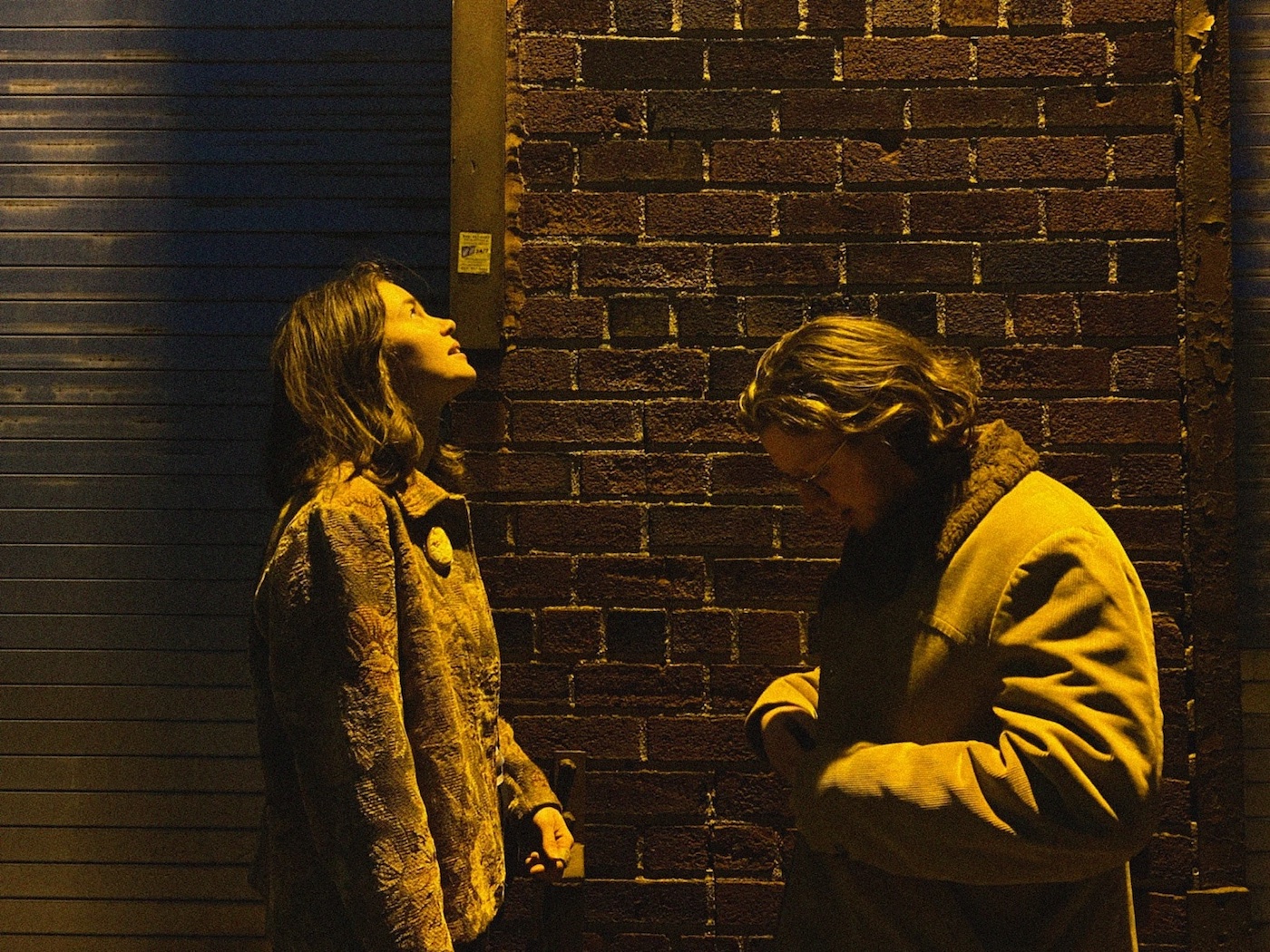
I feel like I got burned out on folk rock… When I do listen to music now, I’m looking for something that I’ve never heard before. I just got into Bjork. I’m a Bjork dork.
How do you feel like you two remain creatively fresh?
Margaret Nygard: I think open tunings on the guitar, for me have been a lifesaver, playing the same chords in different variations really is exhausting for me. I’ll just tune one string to a random note sometimes, just messing around with different strings, and usually it provokes me into doing something different.
Eli Recht-Appel: I think for me, it’s often just listening to music. That’s really inspiring. Knowing that I’m not going to be able to do what they do, but just being like, “What’s my kind of long version of that?” That’s just always the easiest way to pick up the guitar.
* * *
Diamond Grinder perform in venues around New York City. Upcoming shows can be found on their Instagram and Bandcamp.
— —
Blake McMillan is a music journalist from Mississippi, living in Jersey City and studying at The New School for Social Research in Manhattan. He is also the creator of the pop music-inspired audio drama “Cassette Tapes from August.” He can often be found talking way too much about pop music. McMillan can be contacted by email at blakemcmillan13[at]icloud[dot]com or Instagram at @ablakespace.
— —
:: stream/purchase Expectations here ::
:: connect with Diamond Grinder here ::
Stream: “Skeleton” – Diamond Grinder
— — — —

Connect to Diamond Grinder on Instagram
Discover new music on Atwood Magazine
© courtesy of the artist
:: Stream Diamond Grinder ::

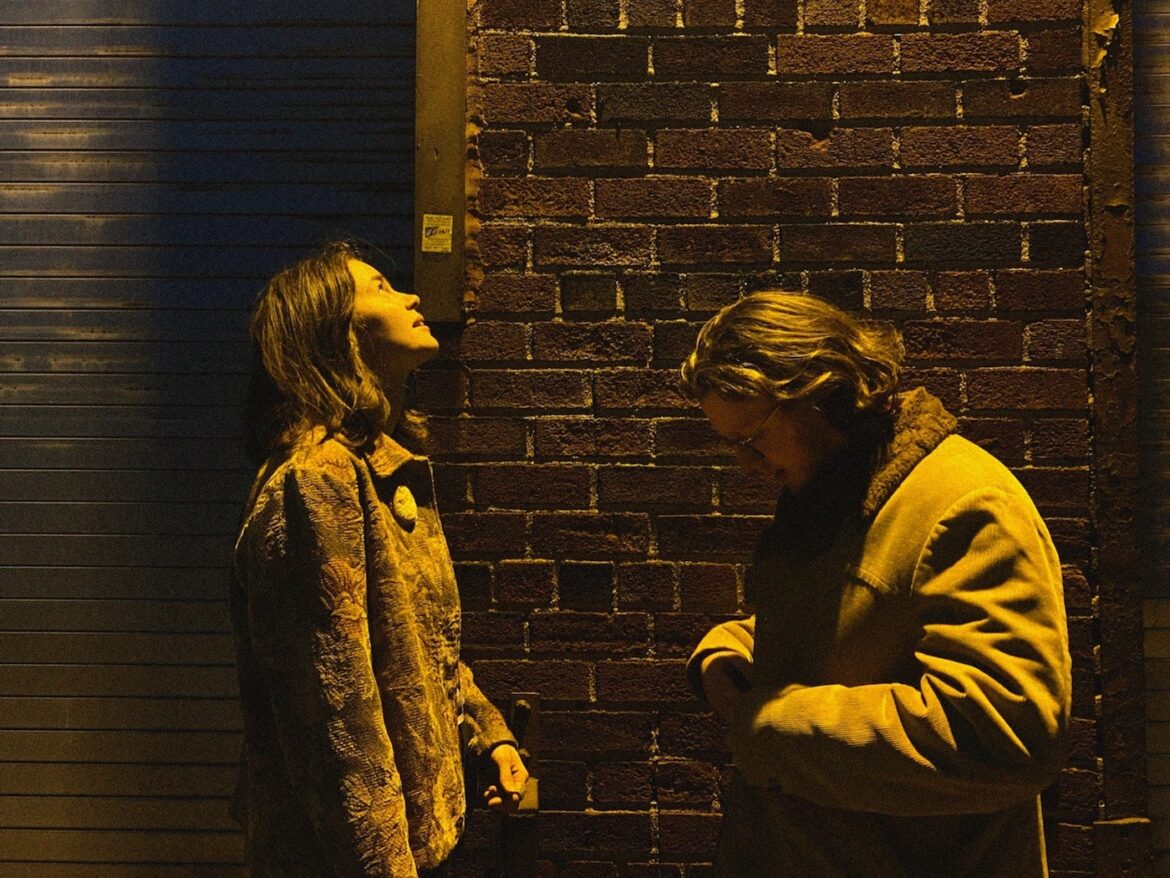
 © courtesy of the artist
© courtesy of the artist
